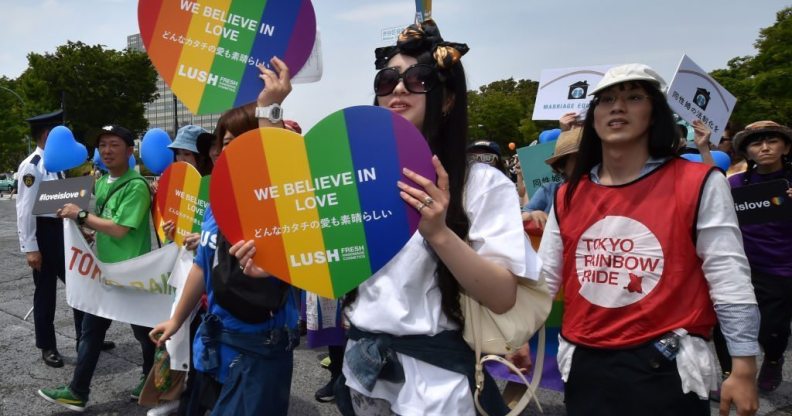Japan still forces sterilisation on trans people

Japan is still forcing transgender people to undergo sterilisation in order to complete its gender recognition process.
Despite strides forward in terms of LGBT equality in recent years, the Human Rights Watch says Japan still forces sterilisation on trans people to complete the process.
The law, no. 111, which was introduced in 2003, was challenged in court by a trans man earlier this year.
The man argued that the sterilisation process is in violation of Japan’s constitutional guarantee of people’s right to be respected as individuals.
And Human Rights Watch says the process is in violation of Japan’s human rights obligations.
The law regulates gender recognition and means that for a trans person to get legal recognition of their gender identity, they have to have a medical diagnosis of Gender Identity Disorder.
Two or more medical professionals must give the diagnosis and once received, a trans person must receive a court order by the family court.
Those in receipt of the court order must be at least 20 years of age, unmarried and without children.
The law also specifies that the person must have a body which is “endowed with genitalia that closely resembles the physical form of an alternative gender.”
This means that the trans person must undergo gender reassignment surgery in order to be legally recognised.
HRW says: “While this legal recognition is a full legal transition from one gender to the other, court cases and research by Japanese nongovernmental organizations have revealed that in practice, even legally recognized transgender people face discrimination in, for example, adopting children and obtaining life insurance. That is to say, while Law No. 111 is on its own terms abusive, discriminatory and in need of reform, there is also a broader need to protect even those transgender people whose appropriate gender has been legally recognized from discrimination.”
“The legal requirements for transgender people in Japan to obtain a GID diagnosis, involve unnecessary, arbitrary, and burdensome tests. The mandatory psychiatric evaluation and the law’s requirement that applicants be unmarried, sterile and lacking any children under 20 are inherently discriminatory.”
Adding: “These conditions—and in particular the maltreatment many transgender people must accept in order to meet them— also amount to cruel and inhuman treatment and to a violation of transgender people’s right to health. The law forces all transgender people who want to secure legal recognition of their appropriate gender to secure diagnosis of a psychological disorder, to refrain from having children at any point during the two decades prior to securing recognition and to be unmarried. It forces many would-be applicants—including those who would not otherwise choose to take these steps— to undergo physically transformative surgical interventions, undergo sterilization, and contemplate the breakup of existing marriages.”
The HRW also goes on to say that the age requirement can be damaging for transgender young people.
A statement from the HRW continues: “Forcing people to undergo unwanted surgeries to obtain documentation is contrary both to Japan’s human rights obligations and its reputation as a champion of LGBT rights,’ HRW writes. ‘The government should urgently revise Law 111 to end forced sterilization.”

